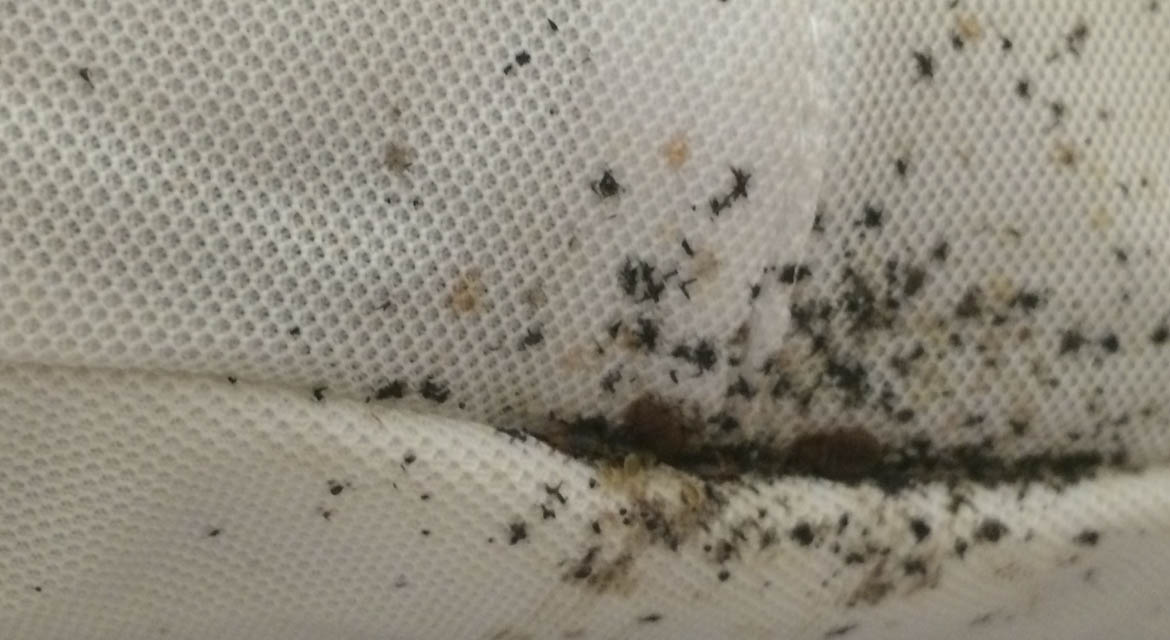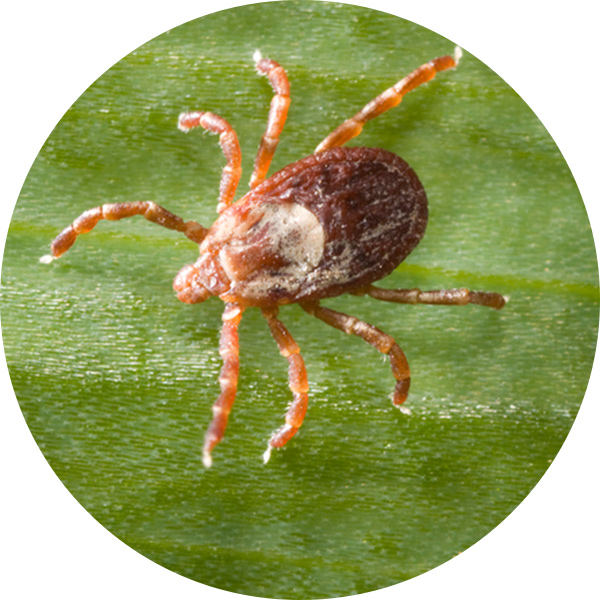
Bed Bug Facts & Information
Bed bugs pose significant risks and impacts as they can cause physical discomfort, emotional distress, and sleep disturbances due to their biting and feeding habits. Infestations can be challenging and costly to eliminate, and they can also lead to social stigma, property damage, and potential transmission of diseases.
Risks of Bed Bugs
Bites and Allergic Reactions
Bed bugs are nocturnal pests that feed on human blood. Their bites can cause various reactions in different individuals. While some people may not have any noticeable reaction to the bites, others may experience itchy, red welts or localized allergic reactions. Scratching the bites excessively can lead to secondary skin infections, such as cellulitis. Additionally, bed bug infestations can cause sleep disturbances and psychological distress due to the fear of being bitten.
Health Risks
While bed bugs are not known to transmit diseases directly, their presence can have an impact on an individual’s overall well-being. The stress and anxiety caused by an infestation can lead to sleep deprivation and emotional distress. Furthermore, some people may develop psychological conditions such as anxiety disorders or insomnia as a result of the ongoing infestation. In rare cases, severe infestations have been associated with iron deficiency anemia, although this is not common.
Property Damage
Dealing with a bed bug infestation can be costly. In severe cases, it may be necessary to discard heavily infested furniture, bedding, and other items, leading to further financial strain. Additionally, the presence of bed bugs can cause damage to furniture, upholstery, and fabrics, as the bugs may leave behind fecal stains, shed skin, or blood spots that can be difficult to remove.
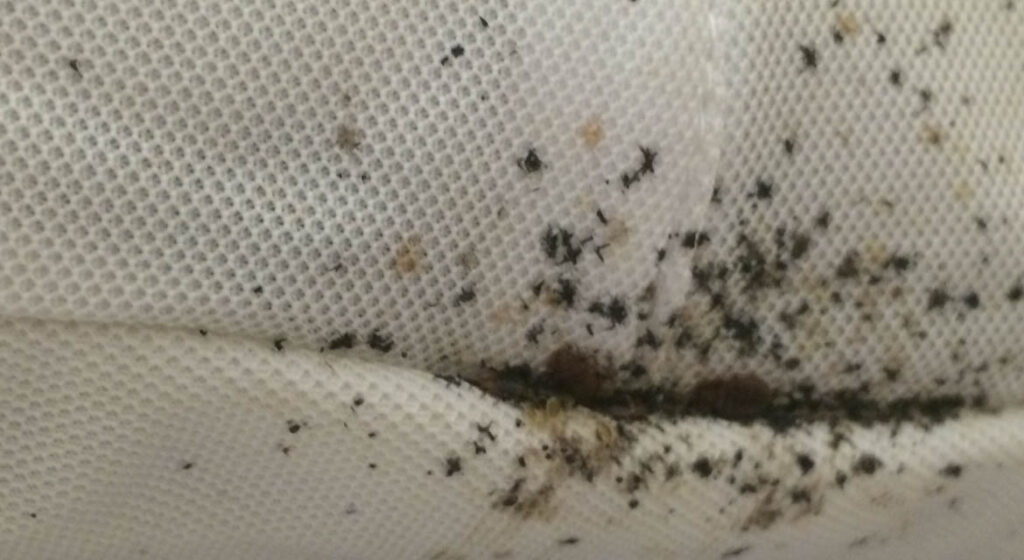
Truly Nolen GUARANTEE
If you’re not completely satisfied, you’ll get a full refund on your most recent service with our 100% money back guarantee.
Common Species of Bed Bugs
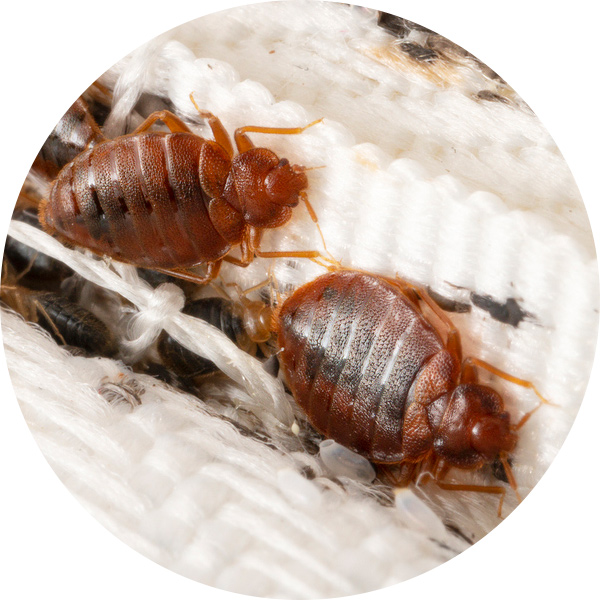
Common Bed Bug
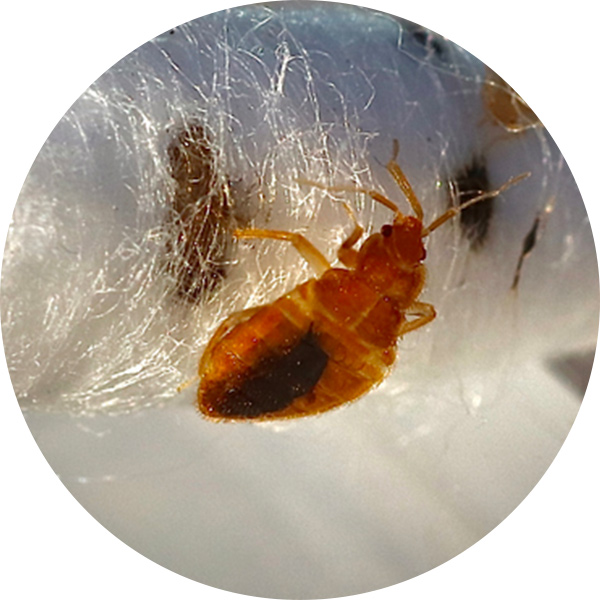
Tropical Bed Bug
How To Identify Bed Bugs
Bed bugs are small, reddish-brown insects that feed on the blood of humans and other warm-blooded animals. Dealing with a bed bug infestation can be a challenging process, especially when the problem is extensive. It is highly recommended to seek the assistance of a local exterminator to effectively control and eliminate the infestation. Your pest control expert will provide guidance on the best practices for cleaning bedding, furniture, and mattresses. Regular vacuuming can also help reduce the number of bugs and eggs. Remember to dispose of the vacuum bag immediately after use.
Bed Bug Appearance
Bed bugs are small, oval-shaped insects that are typically about the size of an apple seed. They are reddish-brown in color and have flat bodies that allow them to hide in small cracks and crevices. Bed bugs have six legs and are wingless, so they cannot fly.
Bed Bug Habitat
Bed bugs are found all over the world and can live in a variety of environments, although they are most commonly found in areas where people sleep, such as homes, hotels, and shelters. They are excellent hitchhikers and can easily travel from place to place on clothing, luggage, and other personal items.
Bed Bug Diet
Bed bugs feed on the blood of humans and other animals. They typically come out at night and can detect the warmth and carbon dioxide that humans give off, which guides them to their hosts. Bed bugs use their sharp, straw-like mouthparts to pierce the skin and suck blood.
Bed Bug Behavior
Bed bugs are nocturnal and they tend to be active at night. They can move quickly and can crawl up walls and ceilings. They can also survive for long periods of time without feeding, which makes them difficult to eliminate.
Bed Bug Reproduction
Female bed bugs can lay hundreds of eggs during their lifetime. The eggs are small and white, and they are typically laid in cracks and crevices. The eggs hatch into small, pale-colored nymphs, which grow into adults in about a month.
Bed Bug Prevention
Preventing bed bug infestations involves being vigilant and taking steps to avoid bringing them into your home. When traveling, inspect hotel rooms carefully for signs of bed bugs, such as blood spots on sheets or mattresses, and store your luggage on a luggage rack or in the bathroom. When you return home, inspect your luggage and clothing carefully for bed bugs before bringing them into your home.

$50 Off Year Round Pest Control
Truly Nolen is a family-owned company with 85 years of experience providing the best pest control. If you’re not completely satisfied, you’ll get a full refund on your most recent service with our 100% money back guarantee.
The Truly Nolen Approach
Environmentally Conscious
We work to minimize our impact on the environment by using naturally occurring materials whenever possible.
Pet Friendly
Truly Nolen uses an Integrated Pest Management (IPM) approach designed with your pets in mind.
100% Money Back Guarantee
If you’re not completely satisfied, you’ll receive a full refund on your most recent service.
How Truly Nolen Gets Rid of Bed Bugs
Truly Nolen offers professional bed bug treatment services designed to eliminate infestations effectively. While specific treatment methods may vary based on the severity of the infestation and other factors, here are some common approaches they may use:
- Inspection: Truly Nolen’s technicians conduct a thorough inspection to determine the extent of the infestation, identify hiding spots, and assess the areas that require treatment.
- Insecticide Application: In addition to heat treatment, Truly Nolen may also use targeted insecticide applications. These treatments are typically focused on areas where bed bugs are known to hide, such as cracks, crevices, and furniture.
- Vacuuming and Steam Treatment: Vacuuming and steam treatment can be used to physically remove and kill bed bugs, especially in areas where heat treatment may not be feasible or effective.
- Follow-up Inspections: After the initial treatment, Truly Nolen may schedule follow-up inspections to ensure that the bed bug infestation has been effectively eradicated. This helps to confirm the success of the treatment and identify any remaining or newly emerged bed bugs.
Frequently Asked Questions
How do I know if I have bed bugs?
Look for signs such as small bloodstains on bedding, dark fecal spots on mattresses or furniture, shed bed bug skins, and itchy bites on your body, particularly in a linear pattern.
How do bed bugs spread?
Bed bugs can spread through various means, including infested furniture or luggage, clothing, or by crawling from neighboring infested areas. They do not jump or fly but are excellent hitchhikers. Learn More!
Are bed bugs dangerous?
While bed bugs are not known to transmit diseases, their bites can cause itching, discomfort, and potential allergic reactions in some individuals. Additionally, bed bug infestations can lead to stress, anxiety, and sleep disturbances.
How can I get rid of bed bugs?
Treating bed bug infestations typically involves a combination of methods, such as thorough cleaning, vacuuming, laundering bedding and clothing in hot water, sealing cracks and crevices, and employing professional pest control services that specialize in bed bug eradication.
How can I prevent bed bug infestations?
To prevent bed bugs, it’s advisable to inspect hotel rooms and accommodations when traveling, avoid bringing secondhand furniture or infested items into your home, regularly clean and vacuum your living space, and be cautious when visiting places with known bed bug issues.

